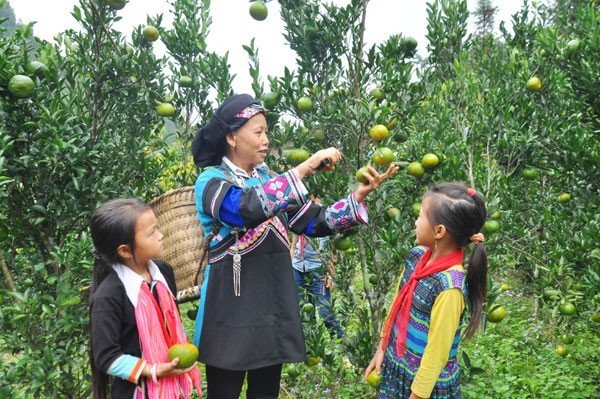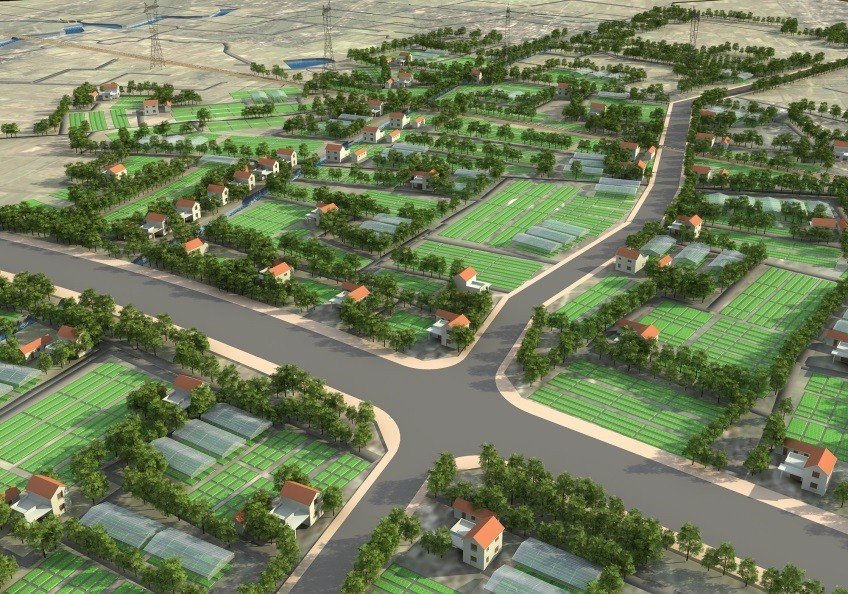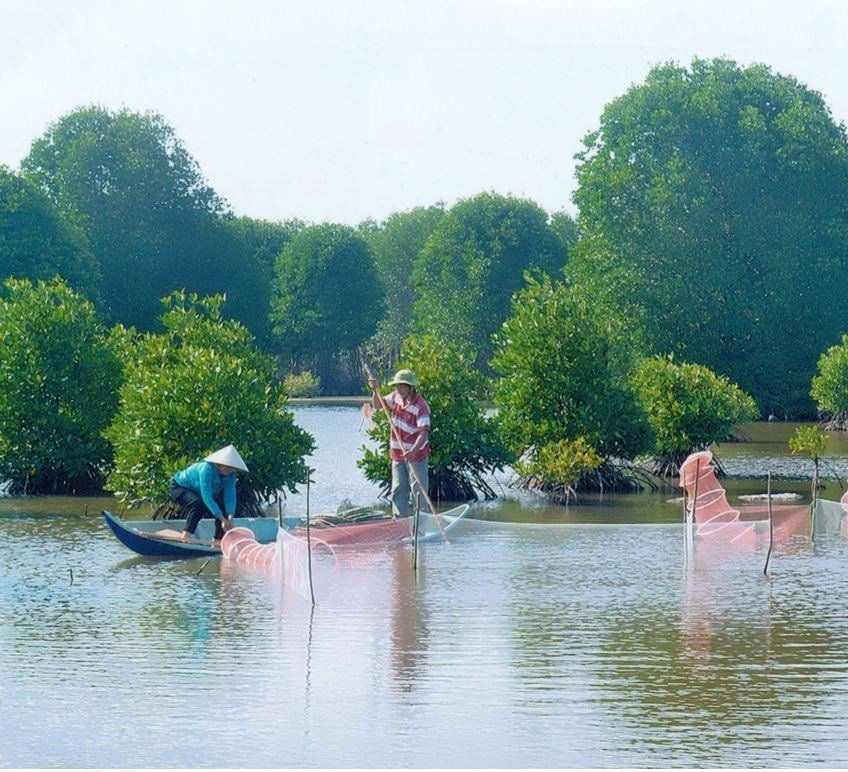June 19, 2025 | 09:29 GMT +7
June 19, 2025 | 09:29 GMT +7
Hotline: 0913.378.918
June 19, 2025 | 09:29 GMT +7
Hotline: 0913.378.918

FAO has developed a country development framework (CPF) that describes the relationship between technical intervention measures relating to FAO’s operation and expected outcomes.
Stemming from the United Nations' request for cooperation in sustainable development, FAO has developed a country development framework (CPF) that describes the relationship between technical intervention measures relating to FAO’s operation and expected outcomes. The CPF development process derives from an interdisciplinary approach and consultation with a wide range of stakeholders, including multi-sectoral planning and consultations with MARD and relevant ministries and agencies at the national level, and institutes. research, academia, and expert level.
After a detailed analysis of Vietnam's agriculture and rural areas and the CPF 2017-2021 assessment carried out and as a result, FAO and MARD have agreed on four priorities for the development of the national development program framework, targeting four priorities:
By 2026, people in Vietnam, especially the poor and those at risk of being left behind, will benefit from inclusive, gender-responsive, disability-sensitive, equitable, affordable, and quality social services and social protection systems, will have moved further out of poverty in all its dimensions and will be empowered to reach their full potential”: Contributing to this Outcome, the One Health (OH) approach is essential for progress to anticipate, prevent, detect, and control diseases that spread between animals, plants, and humans, tackle Antimicrobial Resistance (AMR), ensure food safety, prevent environment-related human and animal health threats, as well as combatting many other challenges. A strengthened and better-performing integrated OH system is a key programmatic priority area for FAO to achieve better production. Thus, FAO will support Vietnam in (1) reducing the incidence of endemic zoonoses in poor farming communities; (2) reducing threats of new epidemics and pandemics; and (3) halting the spread of AMR and pesticide use.

Vietnam is a water-rich country; however, it is exposed to different water-related hazards including typhoons, floods, landslides, droughts, water scarcity, and saline intrusion.
By 2026, people in Vietnam, especially those at risk of being left behind, will benefit from and contribute to a safer and cleaner environment resulting from Vietnam’s effective mitigation and adaption to climate change, disaster risk reduction, and resilience building, the promotion of the circular economy, the provision of clean and renewable energy and the sustainable management of natural resources.
Vietnam is a water-rich country; however, it is exposed to different water-related hazards including typhoons, floods, landslides, droughts, water scarcity, and saline intrusion; all of which are driving issues of reduced water quality and increased water pollution. Areas experiencing the greatest water scarcity include the Red Thai Binh, Dong Nai, Southeast River Cluster, and Mekong Delta, which together account for 80 percent of the GDP. Vietnam is highly susceptible to climate change, threatening the rights and livelihoods as well as the physical and social health of vulnerable communities, risking Vietnam’s fragile development progress. Rapid population growth is placing increased pressure on the environment which includes overconsumption of natural resources, inefficient use of renewable energy, and practices such as unregulated chemical use in agriculture contributing to the extinction of plant and animal species.
These trends are driving the need to prioritize a more streamlined approach to natural resource and environmental management that meet sustainable development targets, seeking to prioritize the needs and rights of those most vulnerable including women, PWDs, children, migrants, ethnic minorities, stateless persons, elderly, people living with chronic disease, people living in disaster-prone areas, vulnerable people, and the poor. Thus, FAO will support Vietnam in enhancing or strengthening capacity for both institutional and individual in practices, governance, and law enforcement in the areas of environmental and natural resources management (including land, water, and biodiversity management).
The FAO will also contribute to more efficient, inclusive, resilient, and sustainable blue FS, promoted through improved policies and programs for integrated science-based management, technological innovation, and private sector engagement.
By 2026, people in Vietnam, especially those at risk of being left behind, will contribute to and benefit equitably from sustainable, inclusive, and gender-responsive economic transformation based on innovation, entrepreneurship, enhanced productivity, competitiveness, and decent work.

The CPF will concentrate on food safety, sustainable production, and consumption.
The CPF will concentrate on food safety, sustainable production, and consumption. National, sub-national, and independent FS dialogues in 2021 identified that multiple challenges are facing Vietnamese FS production, distribution, and consumption, namely food safety, food waste, food loss, overexploitation of natural resources, low labor productivity, unequal benefit sharing, low-value addition leading, and pests/disease hazards.
These directly affect the livelihoods of producers, consumers, and other actors in the FS. It is therefore important to transform and increase the resilience of Vietnam’s agri-food systems to achieve sustainability and Paris Agreement goals enabled through establishing and implementing climate-smart agricultural practices, policies, and programs. Thus, FAO will support Vietnam in increasing or enhancing safe, healthy, and sustainable food production and consumption systems; and promote healthy and nature-positive patterns for food production practices, equitable livelihoods, and value distribution systems in the agri-food sector.
By 2026, people in Vietnam, especially those at risk of being left behind, will benefit from and contribute to a more just, safe, and inclusive society based on improved governance, more responsive institutions, strengthened rule of law, and the protection of and respect for human rights, gender equality and freedom from all forms of violence and discrimination, in line with Vietnam’s international commitments.
FAO will support Vietnam in (1) enabling environments to foster innovative, responsive, accountable, and transparent national systems by mainstreaming cross-cutting issues such as Gender, PWDs, youth, ethnic minorities, etc.; (2) increasing the availability, access, and disaggregated nature of data and statistics for improved monitoring and agricultural-related policy design into its technical interventions; and (3) working for an inclusive rural transformation that ensures equal participation of, and benefits to poor, vulnerable and marginalized groups accelerated through implementation of targeted policies, strategies and programs.
Translated by Linh Linh

(VAN) To address plastic pollution, closing the plastic recycling cycle will bring significant economic and environmental benefits.

(VAN) According to the Binh Thuan Department of Industry and Trade, in the first five months of 2025, Binh Thuan's dragon fruit export turnover increased by 20.65% compared to the same period last year.

(VAN) EU countries on Thursday gave final approval to new tariffs on fertilizer imports from Russia, a move aimed at cutting off revenue that could support Moscow’s war in Ukraine, despite concerns from European farmers.

(VAN) The working delegation from the Ministry of Agriculture and Environment conducted an important trip to the Netherlands to strengthen strategic partnerships and sustainable development in the agricultural sector.

(VAN) The letter ‘A Plea from the Ocean’ not only evokes emotion but also awakens the human conscience to the responsibility of protecting life on Earth.

(VAN) The Department of Agriculture in South Africa has announced the country’s first mass vaccination of poultry to prevent local birds from contracting avian influenza.

(VAN) Establishment of the Mekong Delta Regional Agricultural Linkage Center, aiming for a closed value chain, deep processing, trading platforms, and international market connectivity.